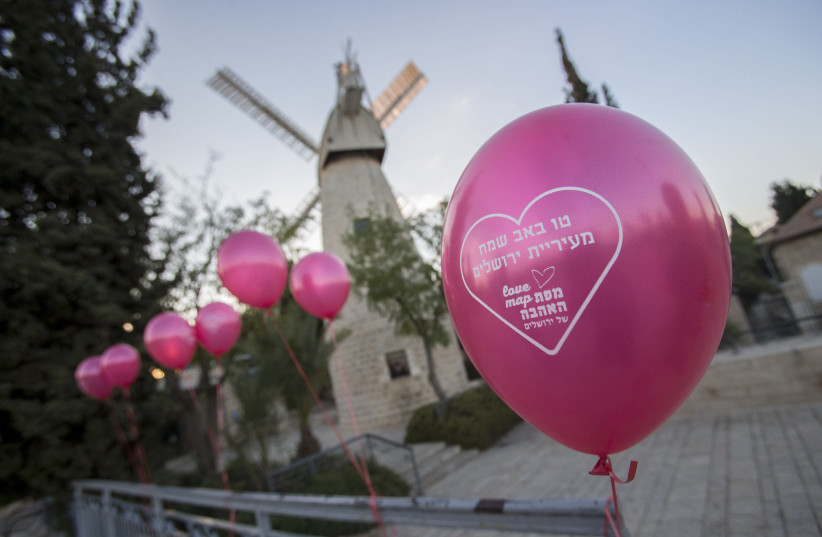Israelis married less and got married slightly younger in 2020 compared to 2019, although at least part of the change was likely due to coronavirus restrictions, according to data released by the Central Bureau of Statistics on Wednesday ahead of Tu Be'av, the Jewish day of love.
39,984 Israeli couples were married through religious institutions in Israel, a 17% drop compared to 2019. About 68% of the newly married couples were Jewish in 2020, a 19% drop in the number of Jewish couples that got married compared to the year before.
11,477 of the couples married in 2020 were Muslims (an 11% drop compared to the year before), 895 were Druze (an 8% drop compared to the year before) and 582 were Christian (a 28% drop compared to the year before).
Meanwhile, 6,746 couples including at least one partner who was registered with the Population Authority were registered as married abroad in 2020. Only 18% of the weddings abroad registered with the Population Registry in 2020 were actually conducted in that same year. About 44% took place in 2019 and the other third took place before 2019.
Tu Be'Av, a Jewish holiday that commemorates a number of joyous events in Jewish history, has become a sort of Valentine's Day in the State of Israel.

The percentage of married citizens compared to the number of single Israelis dropped by 19% during 2020 compared to 2019. Meanwhile, the number of Jewish young adults who were living together as couples without getting married rose in recent years.
The percentage of single Jewish men between the ages of 45-49 rose from 3% in 1970 to 13% in 2020, according to the newly released statistics. The percentage of single Jewish men between the ages of 25-29 also rose from 28% in 1970 to 65% in 2020.
The percentage of single Jewish women between the ages of 45-49 rose from 2% to 11% from 1970 to 2020. The percentage of single Jewish women between the ages of 25-29 rose from 13% to 51% in the same period.
Of the Israeli cities with a population of over 100,000 people, the percentage of single women between the ages of 45-49 was lowest in Beit Shemesh (2.4%) and highest in Tel Aviv (29%). The percentage of single men of the same age was 4.1% in Beit Shemesh and 32.4% in Tel Aviv.
Of these cities, the percentage of single women between the ages of 25-29 was lowest in Bnei Brak (13.8%) and highest in Tel Aviv (80.6%). The percentage of single men of those ages was lowest in Bnei Brak also (19.1%) and highest in Tel Aviv (88.7%).
Israelis getting married slightly younger than in 2019
Meanwhile, the average age that Israeli men first got married at dropped from 27.3-years-old in 2019 to 26.9-years-old in 2020. In 1970, the average age of marriage of men was 25-years-old.
Haredi men in Israel got married at a younger age (22.5-years-old) than their non-Haredi counterparts (28.9-year-old).
Among women, the average age of marriage was 24.6-year-old in 2020, compared to 24.9-years-old in 2019. In 1970, the average age of marriage for women was 21.7-years-old.
The average age of marriage for Haredi women was 21.5-years-old, compared to 27-years-old among their non-Haredi counterparts.
